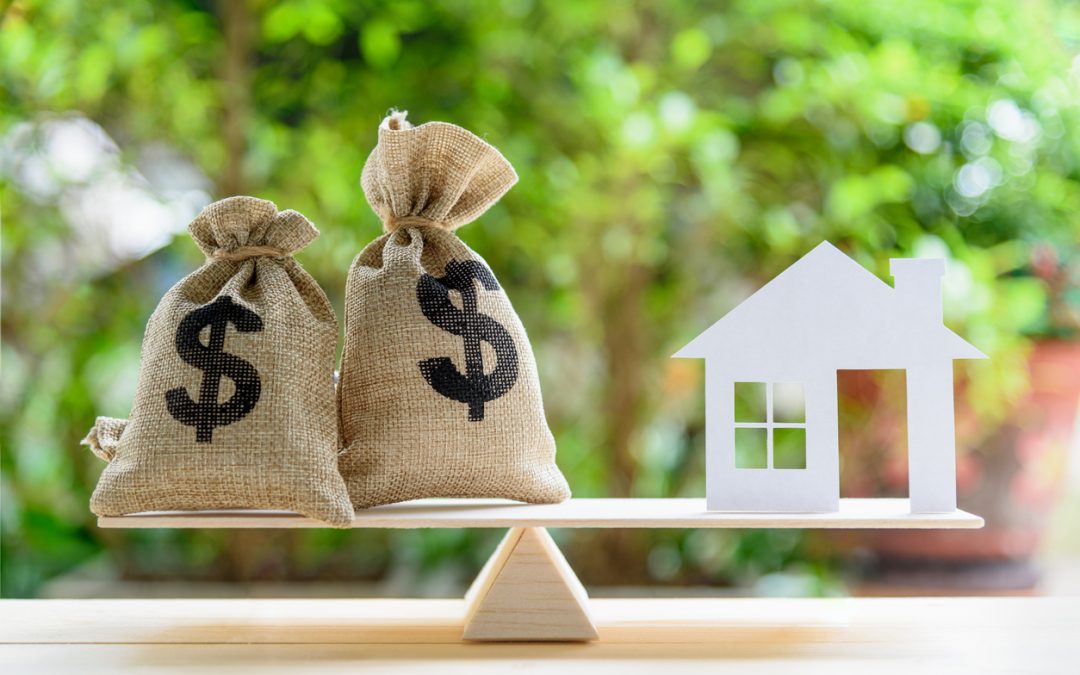A bank’s mortgage specialist will have many things to say to prospective home buyers.
The bank will ask eager homeowners-to-be for information about their income and likely their current debt, then use the information to calculate how much money it will lend.
That amount plus whatever down payment you have saved equal the top amount you can spend on a house.
But is that what you SHOULD spend?
Here are three things the bank might not tell you, and you should consider them before you decide how much house to buy.
1. The amount a bank agrees to lend you is the maximum it will lend, not what it calculates you can afford.
Generally speaking, a bank will look at your household’s gross monthly income to calculate what it believes you can pay without defaulting on the loan. The bank’s calculations include your monthly income and possibly your current debt load.
But the bank doesn’t know all your daily, monthly or yearly expenses, so it is basically guessing what you can afford.
Only you know exactly what money comes in each month and what you spend it on. As a result, only you truly know what you can afford.
2. The cost of owning a home is more than the monthly mortgage payment.
A mortgage payment is the amount of money the bank says you must pay it every month until the bank recoups the money it has given you. The process of buying a house includes other costs. Here are some of them:
- Down payment
- Mortgage-related closing costs. These can include loan application fees, mortgage administration fees, property appraisal fees, bridge financing, property certificates and surveys, title searches, and home inspection fees.
- Legal/notary fees. You need a lawyer or notary to handle the paperwork involved in the transfer of property ownership.
- Mortgage insurance. Private mortgage insurance (PMI) is compulsory if you cannot put down at least 20 percent of the purchase price as a down payment.
- Realtor fees
- Title insurance. This insurance protects you if someone tries to make a legal claim on your home.
In addition to the costs of actually buying the house, there are costs associated with owning a house that you need to keep in mind.
- Property taxes
- Moving costs
- Furniture
- Homeowner’s insurance
- Condo or homeowner association fees
- Utilities
- Commuter fees (such as gas to get from your new home to work, to friends and family, to kids’ lessons)
- Maintenance and repair of house and land
The bank might tell you about some of these costs, especially those bank-related closing costs. But don’t count on the bank to help you figure out if you need new furniture.
3. You can test what it’s like to live with homeownership before you get a mortgage.
Your banker might be nice, but she cannot know what it will be like for you to live as a homeowner. If this is your first time buying a house, you also don’t really know what homeownership will be like or how much house to buy. However, you can get a taste for the homeowner’s financial life ahead of time by doing a three-month dry run as follows:
1. Estimate a mortgage payment.
If you are preapproved for a mortgage, you will have a rough idea how much money you can expect to pay monthly.
Even if you don’t have a preapproved mortgage, however, you can estimate how much you will have to spend.
If your rent is less than this amount, put aside anything additional you will be paying. This money will not be available to you once you buy your house.
2. Calculate how much you will pay a month on total housing costs.
Next, crunch some numbers. Figure out how much you expect to have to pay monthly for all costs associated with homeownership in addition to your mortgage.
Whatever that sum is, put that extra money into a savings account. Pretend that extra money has gone away forever.
3. See how it feels to live like a homeowner.
During these three months, take note of what upkeep tasks are not on your to-do list: mowing, weeding, shoveling the sidewalk, fixing the plumbing. All of these will be yours once you own a house, so keep a running list, and see if you feel comfortable tackling those tasks.
If you can handle these extra costs for three months, you will feel more confident that you can handle them for however long your mortgage lasts.
When those three months are over, you will also have saved a bit of money to pay for those one-time fees that come crowding in when you buy your first home.




